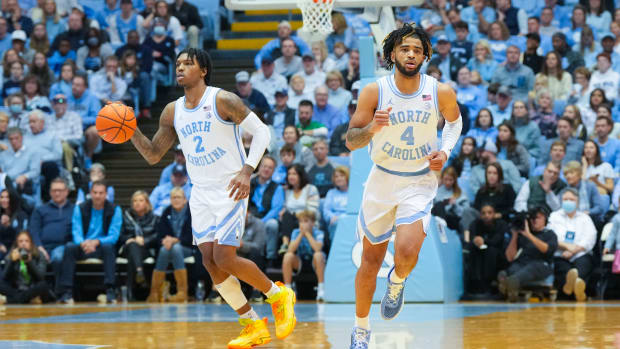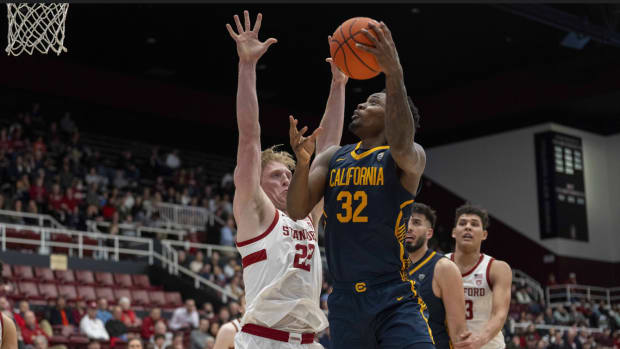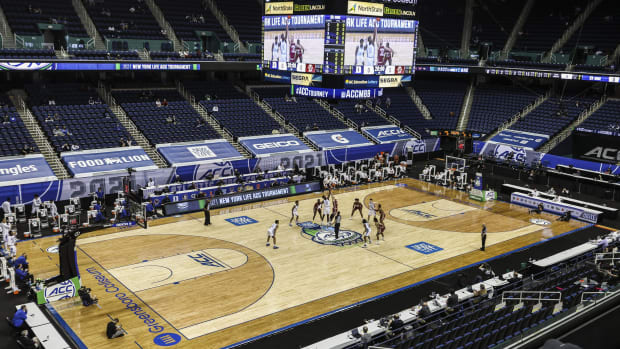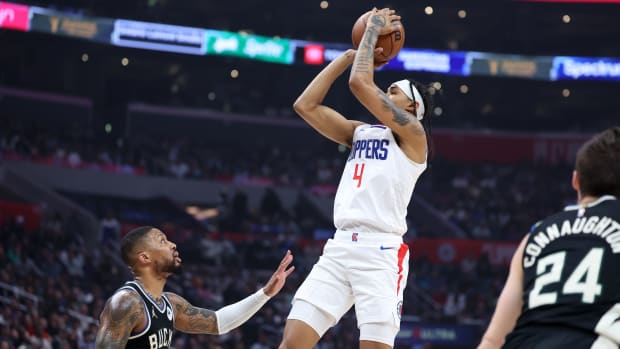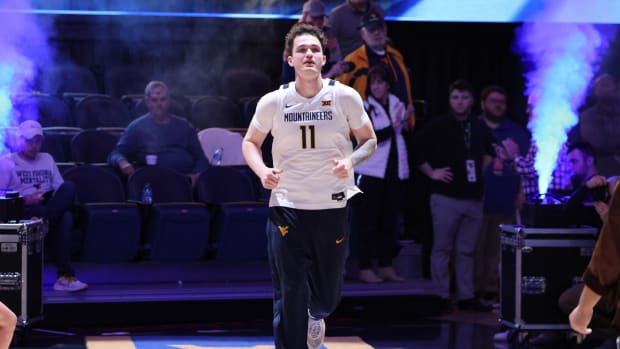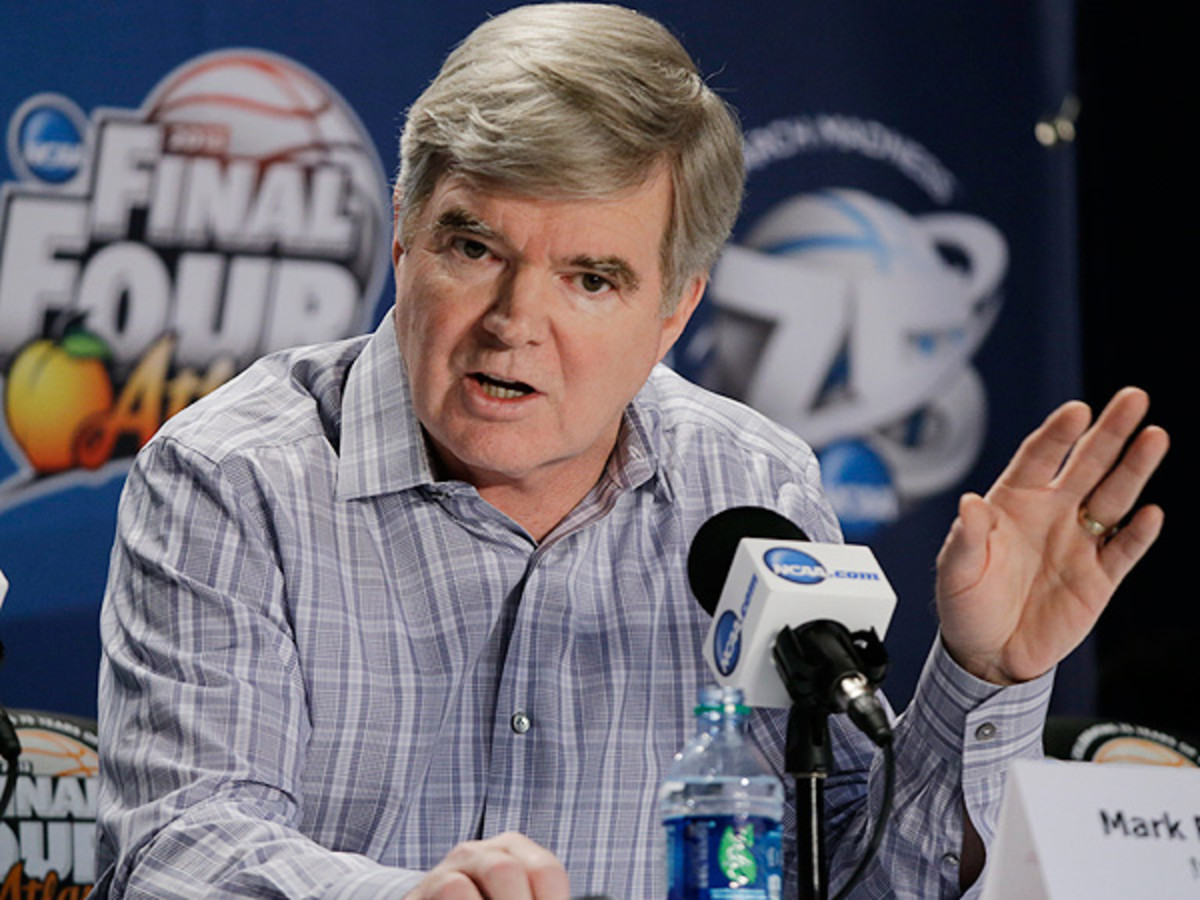
Mark Emmert's basketball dilemma: Could a short-term salve eventually destroy the NCAA?
Mark Emmert touched on the NBA's current draft rule, which doesn't allow players to go straight from high school to the NBA. (Scott Eells/Bloomberg via Getty Images)
There is a significant amount of electronic space being allocated to NCAA president Mark Emmert's comments Monday during a speech at Marquette, but people are focusing on the wrong remarks.
There should have been very little reaction to Emmert's reiterating that the NCAA has no interest in paying athletes. That should go without saying from his and the university president's standpoint. Beyond South Park-fueled commentary ("If we pay them, how will we make all the money?"), the whole student-athlete concept retains its roots in a strategy to avoid athletes being considered employees and exposing schools to a litany of workman's compensation and liability issues.
Instead, the key moment in Emmert's comments were about the NBA's current draft rule, which doesn't allow prospective players to go directly from high school to the league. Emmert broached the draft rule in the course of admitting that the balance of intercollegiate economics had changed, and suggested that one way to close the perceived gap between current athlete compensation (scholarships) and true value for a select number of elite athletes would be to allow them to go pro directly from high school.
It's extremely powerful that Emmert would propose this as a fix to current economic disparity talk, because a return to the old draft rule could significantly damage the long-term quality of the sport that funds nearly all of the NCAA's operations. Is the NCAA that scared about potential doomsday scenarios involving lawmaker intervention and/or a membership breakaway to think that wounding its men's basketball product over time is a strong strategy?
The current draft rules help the NCAA a lot in terms of talent retention. While it would be much better to have players required to stay multiple years in college, one year is far better than zero in terms of the overall NCAA basketball talent pool. NCAA basketball suffered significantly during the abbreviated preps-to-pros era. The sport didn't have nearly enough marquee talent after a few years of high school exoduses. Also, the NBA stands to benefit from forcing players to play in college in terms of draft evaluation and (some) player development. The preps-to-pros era was extremely high beta for NBA teams. For every Kobe Bryant or LeBron James, there were numerous Robert Swifts and Ndudi Ebis who were complete busts as high(ish) first-round draft picks.
What's also crucial to note in the current landscape is there's really no alternative to the NCAA for prospective players. While literal options to spend a year before trying to make the NBA do exist elsewhere, they're not functionally reasonable ones.
A lot of people bring up Brandon Jennings, the former Arizona recruit who ended up playing his pre-NBA season in Italy before being picked 10th overall by Milwaukee, as an example of alternate options for high schoolers. What they choose not to mention is that Jennings spent his season at Virtus Roma coming off the bench and getting limited minutes behind former Penn point guard Ibby Jaaber. Yes, the future No. 10 pick in the NBA draft was iced behind a former Ivy League player. Current European basketball culture (as well as the development programs that help feed youth talent to the parent clubs) leaves almost zero chance for a U.S. high school player to be a desirable commodity for a one-year layover. Currently, going to the D-League isn't much better.
What that essentially means, in economic terms, is high school basketball prospects are left with what's known as a Hobson's choice -- essentially, NCAA basketball is take it or leave it, with "take it" being a generally unfavorable decision that's "less bad" than opting not to partake at all. In essence, colleges have monopoly power and high school basketball stars are left to take the "best worst option."
Given the NCAA option remains the only reasonable one for high school players, Emmert needs to find a way to further entrench that position while appeasing everyone who needs to be appeased, not potentially weaken it in the process and be blind to the NCAA's role in the bigger American basketball picture.
On Twitter, Bylaw Blog creator @John_Infante argued that the NCAA's sole responsibility is to put out a quality college basketball product that can be monetized, and that the overall quality of basketball in the United States (read: the NBA) is not the organization's concern. I think that's shortsighted, though.
If the NBA, over time, views the NCAA pipeline as less and less beneficial to its own needs, there will be more motivation for the league to explore other legitimate options to the NCAA, whether it's really blowing out the D-League, starting club structures similar to Europe, somehow utilizing Europe's club structures as an approved farm system, etc. Any of those options successfully pursued in full would be a long-term disaster for the NCAA. A systematic weakening and possibly eventual elimination of men's basketball as a big-money product would essentially put it out of business.
and

